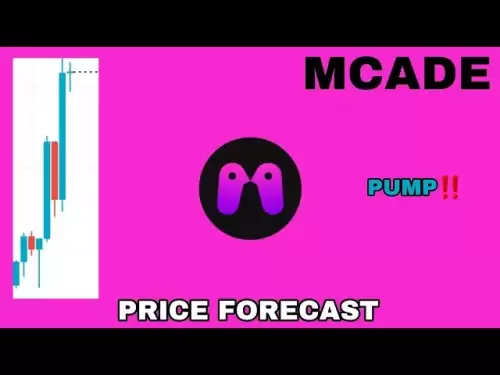-
 Bitcoin
Bitcoin $118,209.3536
1.16% -
 Ethereum
Ethereum $3,151.7546
5.98% -
 XRP
XRP $2.9277
2.35% -
 Tether USDt
Tether USDt $1.0000
0.00% -
 BNB
BNB $689.7099
1.26% -
 Solana
Solana $163.4270
1.91% -
 USDC
USDC $1.0000
0.02% -
 Dogecoin
Dogecoin $0.1983
3.74% -
 TRON
TRON $0.3008
0.51% -
 Cardano
Cardano $0.7435
2.86% -
 Hyperliquid
Hyperliquid $47.6547
-0.48% -
 Stellar
Stellar $0.4625
2.79% -
 Sui
Sui $3.9921
2.71% -
 Chainlink
Chainlink $16.0608
4.23% -
 Hedera
Hedera $0.2348
1.56% -
 Bitcoin Cash
Bitcoin Cash $496.6985
1.25% -
 Avalanche
Avalanche $21.9038
5.41% -
 UNUS SED LEO
UNUS SED LEO $8.8356
-1.88% -
 Shiba Inu
Shiba Inu $0.0...01364
5.31% -
 Toncoin
Toncoin $3.1102
4.35% -
 Litecoin
Litecoin $95.9756
3.59% -
 Polkadot
Polkadot $4.0925
5.78% -
 Monero
Monero $333.7622
-1.44% -
 Uniswap
Uniswap $9.1968
2.25% -
 Bitget Token
Bitget Token $4.6378
6.23% -
 Pepe
Pepe $0.0...01282
6.77% -
 Dai
Dai $1.0002
0.03% -
 Ethena USDe
Ethena USDe $1.0005
0.00% -
 Aave
Aave $329.9143
4.49% -
 Bittensor
Bittensor $441.4995
6.89%
Are there options trading on Bitcoin ETFs?
Bitcoin ETFs offer regulated exposure to Bitcoin's price, and while options trading on these ETFs is possible, it remains limited due to regulatory and market constraints.
Jul 10, 2025 at 12:01 pm
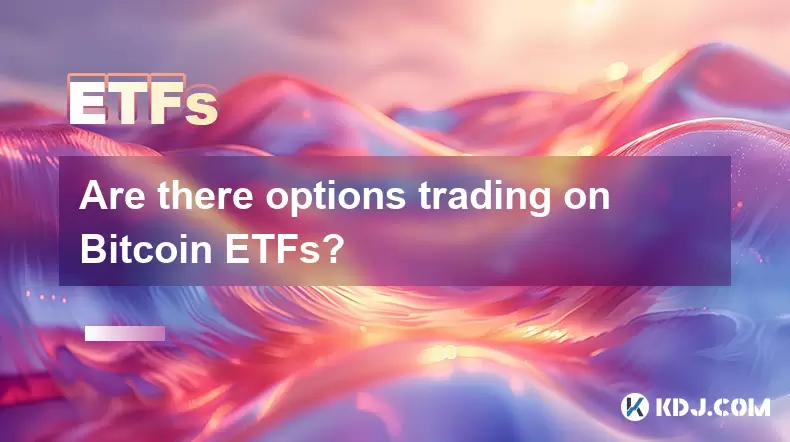
Understanding Bitcoin ETFs and Their Market Role
Bitcoin Exchange-Traded Funds (ETFs) are investment vehicles that track the price of Bitcoin without requiring investors to directly own the cryptocurrency. These funds are traded on traditional stock exchanges, offering a more accessible and regulated way for institutional and retail investors to gain exposure to Bitcoin’s price movements. Unlike direct crypto holdings, Bitcoin ETFs provide liquidity, ease of trading, and integration with conventional brokerage platforms.
The emergence of Bitcoin ETFs has brought significant attention from financial institutions and traders who prefer structured products over volatile spot markets. However, many investors are now asking whether they can trade options on Bitcoin ETFs, similar to how options function in traditional equity or commodity markets.
Options trading allows investors to speculate on future price movements using contracts that give the right—but not the obligation—to buy or sell an asset at a predetermined price.
What Are Options and How Do They Work?
Options are derivative contracts that derive their value from an underlying asset, such as stocks, commodities, or in this case, ETFs. There are two primary types of options: calls and puts. A call option gives the holder the right to buy the underlying asset at a set price, while a put option grants the right to sell it.
In the context of Bitcoin ETFs, if an options market exists, traders can use these instruments to hedge positions, generate income through premium collection, or speculate on short-term volatility. For example, a trader might buy a call option on a Bitcoin ETF if they expect the price of Bitcoin to rise within a specific timeframe.
Key components of options include:
- Strike Price: The price at which the option can be exercised.
- Expiration Date: The date by which the option must be exercised.
- Premium: The cost paid to purchase the option contract.
Current Landscape of Options Trading on Bitcoin ETFs
As of now, several major exchanges have launched Bitcoin ETFs, including ProShares’ BITO and Valkyrie’s BTFD. However, the availability of options on these ETFs is limited and depends on regulatory approval and market demand. In the U.S., the Securities and Exchange Commission (SEC) plays a crucial role in determining which derivatives can be offered on ETF products.
While some ETFs like those tracking gold or major indices have well-established options markets, Bitcoin ETFs are still relatively new, and options trading around them has not yet matured. Some brokers may offer limited options trading on Bitcoin ETFs, but liquidity and volume remain low compared to traditional assets.
Investors should check with their brokerage platform or financial service provider to determine whether options are available for specific Bitcoin ETFs.
How to Trade Options on Bitcoin ETFs
If options are available for a particular Bitcoin ETF, the process of trading them resembles standard options trading procedures. Here’s how to proceed:
- Ensure Eligibility: Confirm that your brokerage account permits options trading and that you’ve been approved for the appropriate options level.
- Research Available Contracts: Use your broker’s platform to look up options chains for the specific Bitcoin ETF ticker symbol.
- Analyze Volatility and Expiry Dates: Choose strike prices and expiration dates based on your market outlook and risk tolerance.
- Place Your Order: Decide whether to buy calls, puts, or write (sell) options depending on your strategy.
- Monitor and Manage: Track the performance of your options position and manage risks accordingly, especially given Bitcoin’s inherent volatility.
It's important to note that options trading carries substantial risk, particularly when dealing with leveraged or speculative assets like Bitcoin ETFs.
Differences Between Spot Bitcoin Options and ETF-Based Options
There are key differences between trading options on spot Bitcoin and those tied to Bitcoin ETFs. Spot Bitcoin options are typically settled in actual Bitcoin and often traded on unregulated exchanges or over-the-counter (OTC) markets. In contrast, ETF-based options are standardized, listed on regulated exchanges, and settled in cash.
One advantage of ETF-based options is that they avoid the complexities of holding and securing actual Bitcoin. Additionally, ETF options benefit from greater transparency and oversight, which can enhance investor confidence.
However, since Bitcoin ETFs do not always perfectly mirror the price of Bitcoin due to tracking errors or fund management fees, there may be discrepancies between ETF options and spot Bitcoin options. Traders should be aware of these nuances before entering positions.
Frequently Asked Questions
Q: Can I trade options on all Bitcoin ETFs?
A: No, not all Bitcoin ETFs have associated options markets. Availability depends on regulatory approvals and exchange listings.
Q: What risks are involved in options trading on Bitcoin ETFs?
A: Risks include market volatility, time decay of options premiums, and potential mispricing between the ETF and the actual Bitcoin price.
Q: Are there tax implications for options trading on Bitcoin ETFs?
A: Yes, profits from options trading are generally subject to capital gains taxes. It’s advisable to consult a tax professional familiar with cryptocurrency investments.
Q: Where can I find real-time data on Bitcoin ETF options?
A: Major brokerage platforms like Interactive Brokers, TD Ameritrade, and Fidelity provide access to options chains and live pricing data for eligible ETFs.
Disclaimer:info@kdj.com
The information provided is not trading advice. kdj.com does not assume any responsibility for any investments made based on the information provided in this article. Cryptocurrencies are highly volatile and it is highly recommended that you invest with caution after thorough research!
If you believe that the content used on this website infringes your copyright, please contact us immediately (info@kdj.com) and we will delete it promptly.
- Avalanche Onchain Insights: Token Relations Unveils Comprehensive Dashboards
- 2025-07-16 22:50:13
- Standard Chartered's Crypto Leap: Regulated Trading and Stablecoin Focus
- 2025-07-16 23:30:13
- Rare Coin Alert: Darwin, Ipswich, and Hidden Treasures!
- 2025-07-16 23:30:13
- Crypto ROI Revolution: Is BFX the Next Big Thing?
- 2025-07-16 21:30:13
- Dogecoin, HBAR, and Partnerships: A Tale of Memes vs. Utility
- 2025-07-16 21:30:13
- Cha-Ching! That £2 Coin Could Be Worth a Mint!
- 2025-07-16 22:10:12
Related knowledge
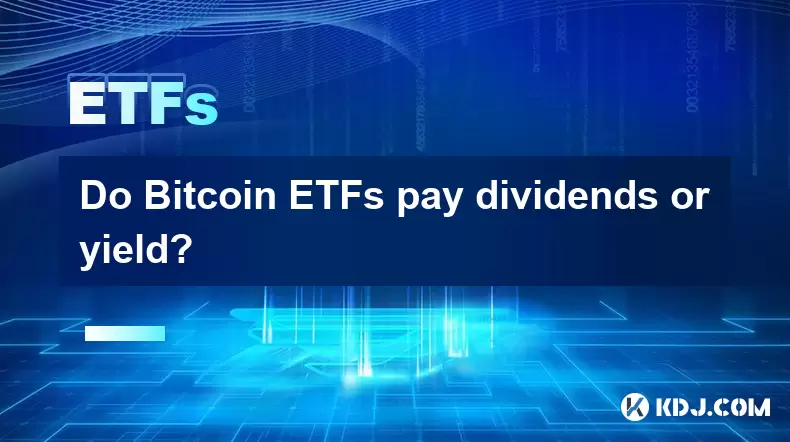
Do Bitcoin ETFs pay dividends or yield?
Jul 16,2025 at 12:50pm
Understanding Bitcoin ETFs and Their Financial MechanicsBitcoin Exchange-Traded Funds (ETFs) have emerged as a popular investment vehicle for those lo...
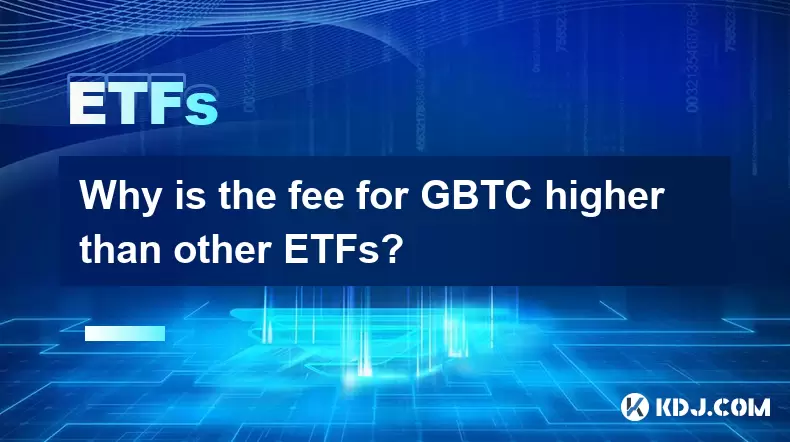
Why is the fee for GBTC higher than other ETFs?
Jul 15,2025 at 03:50pm
Understanding the Structure of GBTCThe Grayscale Bitcoin Trust (GBTC) is a unique investment vehicle that allows investors to gain exposure to Bitcoin...
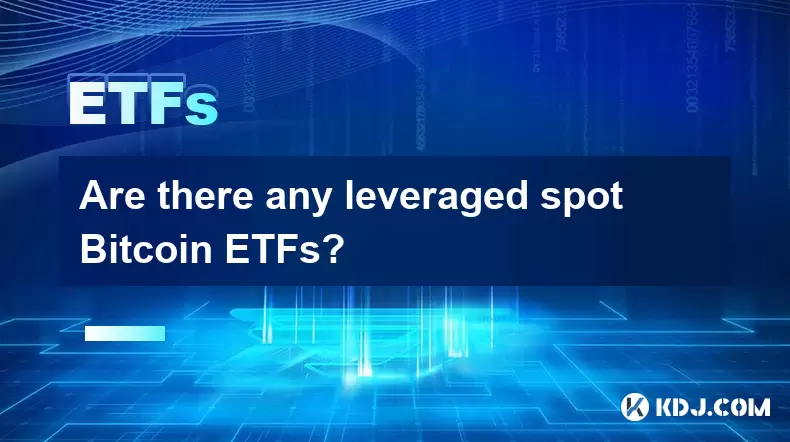
Are there any leveraged spot Bitcoin ETFs?
Jul 14,2025 at 02:22am
What is a Leveraged Spot Bitcoin ETF?A leveraged spot Bitcoin ETF refers to an exchange-traded fund that provides amplified exposure to the price move...
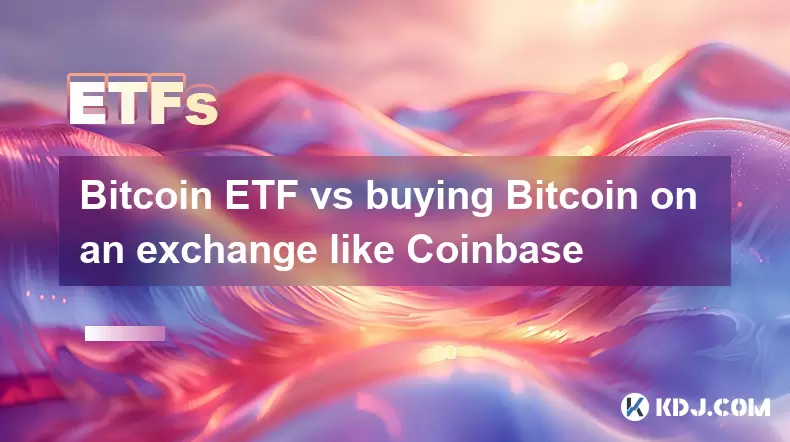
Bitcoin ETF vs buying Bitcoin on an exchange like Coinbase
Jul 09,2025 at 10:15am
What is a Bitcoin ETF?A Bitcoin ETF (Exchange-Traded Fund) is a financial product that tracks the price of Bitcoin without requiring investors to own ...
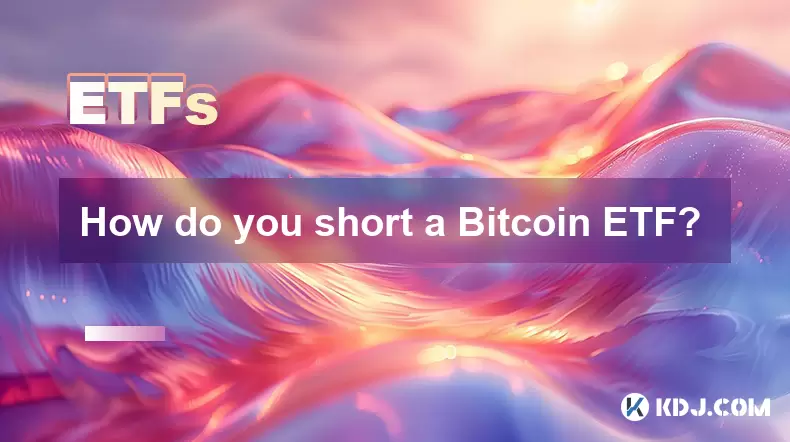
How do you short a Bitcoin ETF?
Jul 09,2025 at 06:14pm
Understanding the Basics of Shorting a Bitcoin ETFShorting a Bitcoin Exchange-Traded Fund (ETF) involves betting that the price of the ETF will fall. ...
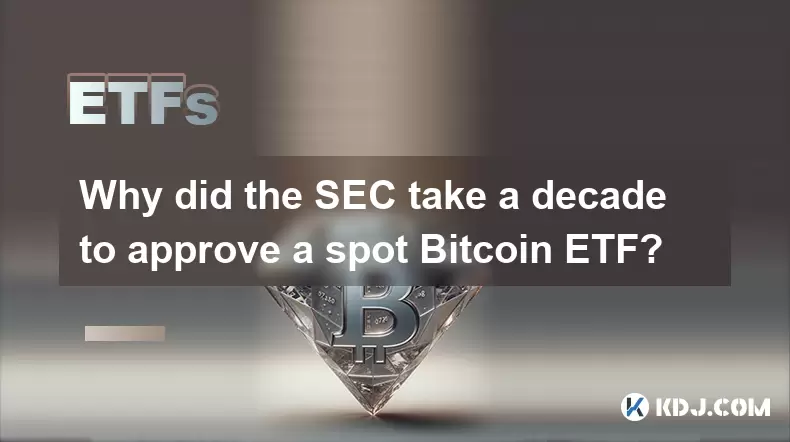
Why did the SEC take a decade to approve a spot Bitcoin ETF?
Jul 11,2025 at 06:07am
Regulatory Framework and Historical ContextThe Securities and Exchange Commission (SEC) has long maintained a cautious approach to financial instrumen...

Do Bitcoin ETFs pay dividends or yield?
Jul 16,2025 at 12:50pm
Understanding Bitcoin ETFs and Their Financial MechanicsBitcoin Exchange-Traded Funds (ETFs) have emerged as a popular investment vehicle for those lo...

Why is the fee for GBTC higher than other ETFs?
Jul 15,2025 at 03:50pm
Understanding the Structure of GBTCThe Grayscale Bitcoin Trust (GBTC) is a unique investment vehicle that allows investors to gain exposure to Bitcoin...

Are there any leveraged spot Bitcoin ETFs?
Jul 14,2025 at 02:22am
What is a Leveraged Spot Bitcoin ETF?A leveraged spot Bitcoin ETF refers to an exchange-traded fund that provides amplified exposure to the price move...

Bitcoin ETF vs buying Bitcoin on an exchange like Coinbase
Jul 09,2025 at 10:15am
What is a Bitcoin ETF?A Bitcoin ETF (Exchange-Traded Fund) is a financial product that tracks the price of Bitcoin without requiring investors to own ...

How do you short a Bitcoin ETF?
Jul 09,2025 at 06:14pm
Understanding the Basics of Shorting a Bitcoin ETFShorting a Bitcoin Exchange-Traded Fund (ETF) involves betting that the price of the ETF will fall. ...

Why did the SEC take a decade to approve a spot Bitcoin ETF?
Jul 11,2025 at 06:07am
Regulatory Framework and Historical ContextThe Securities and Exchange Commission (SEC) has long maintained a cautious approach to financial instrumen...
See all articles
























